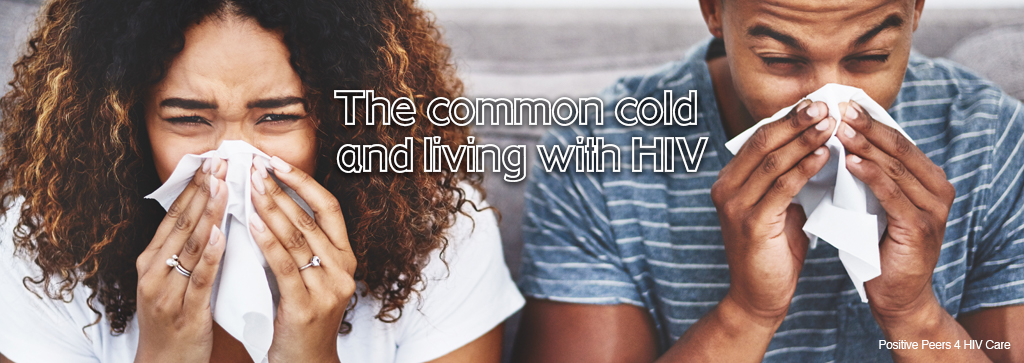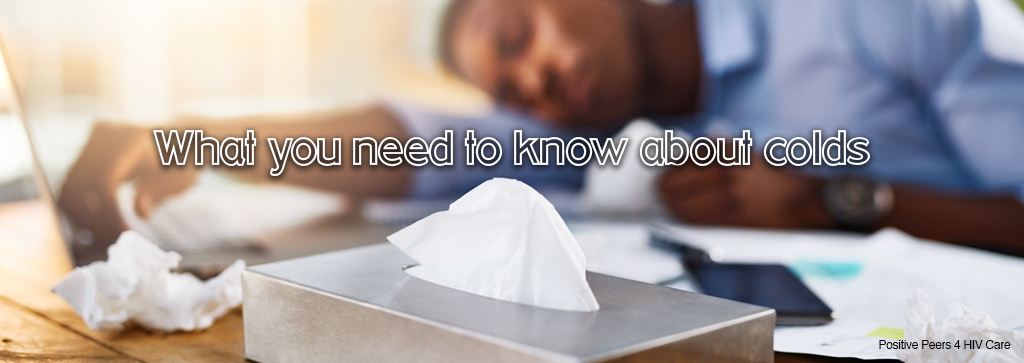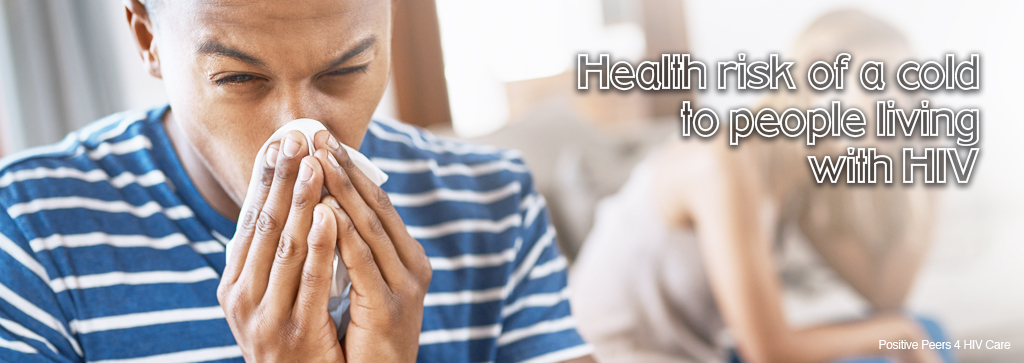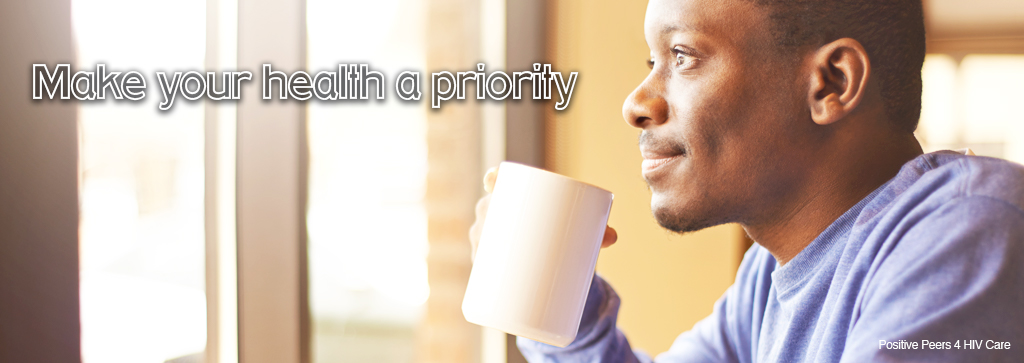
By: Ann Avery, MD, Infectious Disease Physician at MetroHealth Medical Center
Getting a cold is the worst. It means two or three weeks of runny noses, sore throats, and feeling like crap. Billions of people are unlucky enough to wind up with a common cold each year. However, for the more than one million people in the U.S. who are living with HIV, a cold can be a bigger health risk if they’re not in treatment and virally suppressed.
You probably know that HIV attacks your immune system. It does this by attacking your white blood cells. That’s what fights off infections in your body. If your immune system is compromised by untreated HIV, even something as simple as a cold can really harm you! That’s why it’s so important to get tested for HIV and become virally suppressed if you’re living with it.
It’s important to note that for people who are unaware of their HIV diagnosis, HIV sometimes feels like a cold.

What you need to know about colds
Like HIV, the common cold is a virus. The cold virus can spread a few different ways such as human-to-human contact, through the air, or by touching something that’s been contaminated. According to the Mayo Clinic, most viruses are breathed in through your mouth or nose.
Your immune system knows the virus doesn’t belong there and might start fighting it off by raising body temperature. That’s why you might get a fever that can cause the muscle and headaches when you have a cold. Colds can cause a lot of other nasty symptoms too.
Some common symptoms are:
- Runny or stuffy nose
- Nasal congestion
- Sneezing
- Coughing
- Sore throat
- Less hungry than usual
Feeling really sleepy when you have a cold happens a lot too. It’s hard work fighting off a cold, so your body needs the chance to recharge more than it normally would.
Come join our private, stigma-free, supportive community.
Health management tools with medication & appointment reminders.
Social networking in a community conversation & private chats.
Treating and preventing a cold
If you want to you get rid of your cold ASAP, the National Institute of Allergy and Infectious Diseases recommends using over-the-counter fever-reducing medications and pain relievers like ibuprofen, aspirin, and acetaminophen.
Calling your doctor for additional support and care is always a good idea. Many times, the worst cold symptoms last a week or so before going away on their own. If your symptoms don’t improve or actually get worse, it’s critical you see a doctor, so you don’t get sicker.
Colds can really impact your appetite, but it’s important to still eat. Try making small meals for yourself until your appetite comes back. Even if you’re only eating healthy snacks when you can, it’s still much better than not eating at all. Your body needs the energy and support.
Don’t forget about drinking plenty of water! This is especially true if you have a fever because your body will dehydrate faster. So be sure to stay hydrated!
Having a cold is one of those times when it’s perfectly fine to sleep a lot. Your body needs the rest so it can recover from all the extra work it’s doing. Don’t be afraid to take the rest you need.
There are a lot of steps you can take to keep cold viruses from spreading.
The National Institute of Allergy and Infectious Diseases suggests that you:
- Keep away from sick people if you can
- Wash your hands a lot to kill any viruses before they can get inside your body
- Disinfect things other people touch a lot like doorknobs, toilet levers, and countertops
- Make sure you’re up to date on your shots

Health risk of a cold to people living with HIV
The good news is that people living with HIV aren’t any more likely to catch a cold than anyone else or even have worse symptoms. However, the bad news is that, because HIV compromises your immune system, it’s harder to fight off colds and other infections if you don’t keep yourself virally suppress. As always, we encourage you to stay on top of your meds and appointments.
One of the best ways to prevent a cold is to practice good hygiene. If you know a friend or family member is sick, do your best to kindly avoid them until they aren’t contagious any longer. However, if you’re unable to stay away, ask if they can cover their mouth and nose when they cough and sneeze and try not to touch surfaces if they’ve rubbed their nose or eyes. If you feel comfortable doing so, tell them how important it is that you stay healthy.
When someone in your house becomes sick, it becomes especially important to kill germs in your home. Antibacterial cleaners and mild bleach solutions are your best bet. Wipe down commonly touched places, like your doorknobs, countertops, sinks, telephones, TV remote, keyboard, and refrigerator handle.
Another good idea is to talk to your doctor about vaccinations you can get to help prevent both the flu and pneumonia. It’s suggested that people living with HIV and other chronic medical conditions get a flu shot every year.

Make your health a priority
Keep in mind that if you don’t take care of your health whenever you get a cold, it becomes much easier to get a secondary infection like pneumonia.
Making your health a priority, even with something as seemingly innocent as a cold, is the best way to take charge and live life to the fullest!
Related Blogs:


